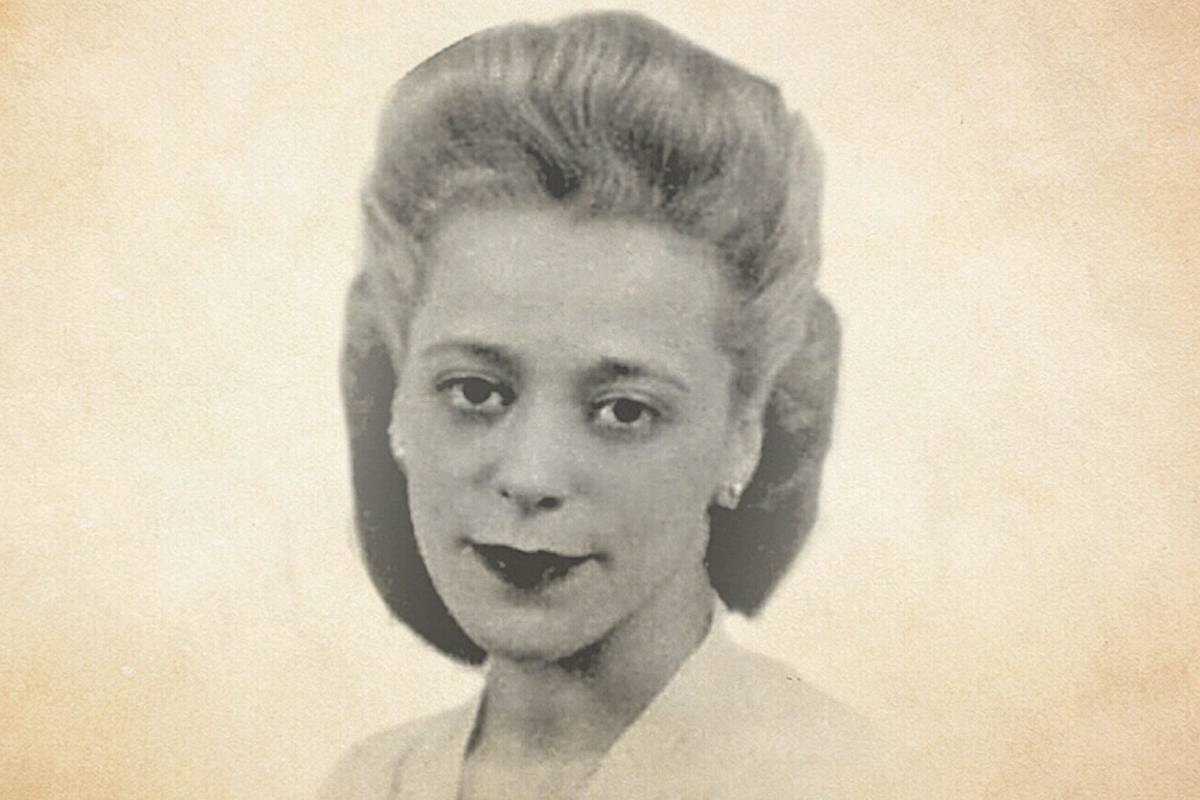
Viola Desmond, born on July 8, 1912, in Halifax, Nova Scotia, was a pioneering Black Canadian businesswoman and civil rights activist. Best known for her courageous stand against racial segregation in 1946, her actions and the subsequent legal battle played a crucial role in the fight for racial equality in Canada. Desmond’s legacy continues to inspire and educate, as her story is commemorated through numerous honors, including a posthumous pardon, a place on the Canadian $10 bill, and various awards and recognitions that celebrate her contributions to social justice.
Viola Desmond was born Viola Davis on July 8, 1912, in Halifax, Nova Scotia, Canada.
Viola Desmond was born Viola Irene Davis on July 8, 1912, in Halifax, Nova Scotia, Canada. Halifax, known for its maritime history, was also a place of significant racial diversity and tension. Her birth into a middle-class, mixed-race family placed her at the crossroads of these social dynamics from an early age. Growing up in Halifax during the early 20th century, Desmond witnessed both the opportunities and limitations faced by the Black community, shaping her future resolve to challenge racial barriers. Her early experiences in this diverse yet segregated city played a critical role in her later activism.
Her father, James Davis, was a longshoreman and barber, and her mother, Gwendolyn (née Prosper), was a homemaker.
James Davis, Viola’s father, juggled roles as a longshoreman and a barber, reflecting the industrious spirit of the Black working class in Halifax. His jobs required both physical labor and interpersonal skills, providing a stable, though modest, income for the family. Gwendolyn Prosper, her mother, dedicated herself to homemaking, a role that was pivotal in maintaining the household and supporting her children’s education and upbringing. The dual influence of her parents’ hard work and resilience significantly shaped Viola’s values and work ethic, instilling in her a sense of pride and determination to succeed against societal odds.
Desmond worked as a beautician in Montreal for several years.
In her early twenties, Viola Desmond moved to Montreal, Quebec, to pursue a career as a beautician. This move was significant as Montreal offered more opportunities and a somewhat different social atmosphere compared to Halifax. She trained at the Field Beauty Culture School, one of the few institutions in Canada that accepted Black students. Her time in Montreal allowed her to hone her skills and gain valuable experience in cosmetology. Returning to Halifax, she applied this expertise to open her own beauty salon, marking the beginning of her entrepreneurial journey and her commitment to empowering other Black women through beauty and self-care.
In 1946, she married Jack Desmond, a businessman from Halifax.
In 1946, Viola married Jack Desmond, a well-respected businessman in Halifax. Jack ran a barbershop, and the couple shared a strong entrepreneurial spirit. Together, they were a formidable team, combining their skills and resources to support each other’s businesses. Their marriage also provided a stable personal foundation for Viola as she navigated the challenges of being a Black female entrepreneur in a racially segregated society. Jack’s support was crucial when Viola faced her legal battles and broader social activism, showing the importance of solidarity and partnership in her life.
On November 8, 1946, Viola Desmond, a Black woman, was denied service at a whites-only section of the Roseland Theatre in New Glasgow, Nova Scotia. She was attempting to buy a ticket to watch the movie “Carmen Gets a Gun.”
On November 8, 1946, during a business trip, Viola Desmond decided to watch a movie at the Roseland Theatre in New Glasgow, Nova Scotia. Unaware of the theater’s segregation policy, she attempted to purchase a ticket for the main floor, which was reserved for white patrons, to watch the film “Carmen Gets a Gun.” When denied and directed to the balcony, the section designated for Black patrons, she resolved to challenge this unjust policy. This incident marked the beginning of a significant act of resistance against racial segregation in Canada, highlighting the everyday discrimination faced by Black Canadians.
Desmond refused to leave the seat and argued with the theater manager, eventually being forcibly removed by police.
Refusing to accept the discriminatory seating policy, Viola Desmond took a stand by occupying a seat on the main floor. When the theater manager insisted she move to the balcony, she argued her right to sit where she had originally intended. Her refusal to comply resulted in the manager calling the police. Desmond was forcibly removed from the theater by law enforcement officers, demonstrating her courage and willingness to face physical confrontation for her beliefs. This moment of defiance became a catalyst for her subsequent legal battle and a broader movement against racial segregation in Canada.
She was arrested and charged with attempting to defraud the theater of one penny in tax (the difference between the price of the balcony ticket she was sold and the price of the seat she sat in).
Following her removal from the Roseland Theatre, Viola Desmond was arrested and charged with tax evasion, a charge based on the one-cent difference between the balcony ticket she had purchased and the more expensive main floor ticket. This charge was a clear pretext to penalize her for challenging racial segregation. The charge of defrauding the government of one penny was not only trivial but also an egregious misuse of the law to uphold discriminatory practices. Despite the absurdity of the charge, it led to a legal battle that highlighted the systemic racism entrenched in Canadian society.
Desmond pleaded not guilty, but was convicted by an all-white jury and fined $20 plus court costs.
In court, Viola Desmond pleaded not guilty to the charge of tax evasion, maintaining her stance against the discriminatory practice she had encountered. Despite her defense, she was tried by an all-white jury, which was common in an era when Black people were often excluded from jury service. Predictably, the jury found her guilty, and she was fined $20, plus additional court costs. This conviction underscored the racial biases within the judicial system, as well as the broader societal acceptance of segregation and discrimination. The unjust outcome of her trial became a rallying point for civil rights advocates in Canada.
Her case, Viola Desmond v. The King, became a landmark case in the fight for racial equality in Canada. Though she lost the case, it helped spark a national conversation about racial discrimination.
The legal battle, formally known as Viola Desmond v. The King, emerged as a landmark case in the Canadian civil rights movement. Despite losing the case, Desmond’s fight against her unjust conviction brought significant public attention to the issues of racial segregation and discrimination in Canada. Her case exposed the systemic racism present in Canadian society and the legal system, prompting discussions and actions towards greater racial equality. Although the immediate legal outcome was not in her favor, her courageous stand laid the groundwork for future legislative and social changes aimed at dismantling racial barriers.
Desmond died in Montreal on February 7, 1967, at the age of 54.
Viola Desmond passed away on February 7, 1967, in Montreal, Quebec, at the age of 54. Her death marked the end of a life characterized by resilience, entrepreneurship, and activism. Despite the challenges and discrimination, she faced, Desmond’s legacy endured beyond her lifetime. Her struggle and determination continued to inspire future generations to fight for civil rights and equality. Montreal, a city that had played a significant role in her professional life, became her final resting place, symbolizing her enduring connection to her life’s journey and work.
In 1984, Nova Scotia granted Desmond a posthumous pardon.
In 1984, almost two decades after her death, Nova Scotia granted Viola Desmond a posthumous pardon. This pardon was a significant acknowledgment of the injustice she had faced in 1946. The government recognized that her conviction was a result of racial discrimination rather than any actual wrongdoing. The pardon was not just a symbolic act but also a formal declaration that her actions were justified and that she had been wrongfully convicted. This step by the Nova Scotian government was an essential part of reconciling with past injustices and honoring Desmond’s legacy in the fight for civil rights.
In 2010, the Canadian government formally apologized for her arrest and conviction.
In 2010, the Canadian government issued a formal apology for the arrest and conviction of Viola Desmond. This apology, delivered by Nova Scotia’s Lieutenant Governor Mayann Francis, was a significant act of redress and recognition of the systemic racism that Desmond faced. The apology acknowledged the harm caused by the wrongful conviction and underscored the importance of addressing historical injustices. This official recognition by the government helped to solidify Desmond’s place in Canadian history as a pivotal figure in the struggle for racial equality.
In 2016, Viola Desmond became the first Canadian woman to appear on a Canadian banknote, the $10 bill.
In 2016, the Bank of Canada announced that Viola Desmond would be the first Canadian woman to appear on a regularly circulating banknote, the $10 bill. This honor placed her alongside other iconic figures in Canadian history and served as a powerful symbol of her impact on the nation’s journey toward equality. The new banknote, which entered circulation in 2018, features her portrait and commemorates her courageous stand against racial segregation. This recognition on the $10 bill ensures that her legacy is celebrated and remembered by all Canadians in their daily lives.
A commemorative stamp was issued by Canada Post in 2016 to honor Viola Desmond.
In 2016, Canada Post issued a commemorative stamp to honor Viola Desmond, further cementing her status as a national icon. The stamp featured her portrait and highlighted her contributions to the civil rights movement in Canada. This philatelic tribute was part of a broader effort to recognize and celebrate the achievements of influential Black Canadians. The release of the stamp brought her story to a wider audience and served as an educational tool, reminding Canadians of her fight against racial discrimination and her lasting impact on the country’s history.
In 2010, the Roseland Theatre building was designated a national historic site by the Canadian government.
In 2010, the Canadian government designated the Roseland Theatre building in New Glasgow, Nova Scotia, as a national historic site. This designation was a direct result of its association with Viola Desmond’s act of defiance in 1946. By recognizing the theater as a historic site, the government acknowledged the significance of the location in Canadian civil rights history. The Roseland Theatre thus became a landmark symbolizing the struggle against racial segregation and the bravery of those who challenged it. This recognition helps ensure that the history and lessons of Desmond’s stand remain an integral part of Canada’s heritage.
A statue of Viola Desmond was unveiled in Halifax, Nova Scotia in 2010.
In 2010, a statue of Viola Desmond was unveiled in Halifax, Nova Scotia, as a tribute to her legacy. The statue stands as a powerful reminder of her courage and the impact of her actions on Canadian society. Located in a prominent public space, it serves to educate the public and inspire future generations. This monument not only honors Desmond but also highlights the ongoing importance of fighting for justice and equality. The statue’s presence in Halifax, the city of her birth and early life, underscores the local and national significance of her story.
Desmond’s story is featured in the Canadian Museum of History in Gatineau, Quebec.
The Canadian Museum of History in Gatineau, Quebec, features an exhibit dedicated to Viola Desmond’s story. This exhibit includes artifacts, photographs, and detailed narratives of her life and her historic stand against racial segregation. By showcasing her story, the museum ensures that visitors from across the country and around the world can learn about her contributions to civil rights in Canada. The exhibit plays a crucial role in preserving her legacy and educating the public about the history of racial discrimination and the ongoing struggle for equality.
Several schools across Canada are named after Viola Desmond.
Several schools across Canada bear the name of Viola Desmond, reflecting her enduring legacy in education and civil rights. These schools honor her memory by promoting values of equality, justice, and resilience. Naming educational institutions after Desmond ensures that her story and achievements are passed on to future generations. It serves as a daily reminder to students and educators alike of the importance of standing up against discrimination and advocating for social change. These schools play a vital role in keeping her legacy alive and relevant in contemporary Canadian society.
Viola Desmond received the prestigious Doctor of Laws degree (honorary) in 2010 from Dalhousie University.
In 2010, Dalhousie University awarded Viola Desmond a posthumous Doctor of Laws degree (honorary). This prestigious honor recognized her significant contributions to the fight for racial equality and justice in Canada. The degree was conferred to acknowledge her bravery and the impact of her actions on Canadian legal and social systems. By awarding this honorary degree, Dalhousie University highlighted the importance of Desmond’s legacy in the academic and broader community, inspiring students and faculty to continue advocating for social justice and equality.
In 2016, Cape Breton University renamed their student centre the Viola Desmond Centre.
In 2016, Cape Breton University renamed their student centre the Viola Desmond Centre. This renaming honored Desmond’s contributions to civil rights and recognized her as an inspirational figure for students. The Viola Desmond Centre serves as a hub for student activities, support services, and cultural events, embodying the values of inclusion and equality that Desmond championed. By naming the centre after her, Cape Breton University not only commemorates her legacy but also commits to fostering an environment of diversity and social justice on campus.
The Centre for AfroCanadian Policy Research and Innovation at Dalhousie University established the Viola Desmond Chair in Anti-Racism Studies in 2017.
In 2017, Dalhousie University’s Centre for AfroCanadian Policy Research and Innovation established the Viola Desmond Chair in Anti-Racism Studies. This endowed academic position focuses on research, education, and policy development to combat racism and promote social justice. The Chair honors Desmond’s legacy by advancing scholarly work and community initiatives that address systemic racism. It serves as a platform for scholars and activists to collaborate on solutions to racial inequality, ensuring that Desmond’s pioneering efforts continue to influence contemporary anti-racism work and academic discourse.
A feature film about Viola Desmond, “Highway of Tears,” was released in 2015.
In 2015, a feature film titled “Highway of Tears” was released, focusing on the life and legacy of Viola Desmond. The film, although primarily addressing the tragic disappearances and murders of Indigenous women along the highway of the same name, also highlighted Desmond’s story as part of a broader narrative of racial injustice in Canada. By including her story, the film aimed to draw parallels between different forms of systemic discrimination faced by marginalized communities. This cinematic portrayal brought Desmond’s courageous stand against racial segregation to a wider audience, contributing to public awareness and education about her impact.
Desmond’s story is featured in the book “Uncertain Justice: Canadian lawyers and the pursuit of racial equality” by Constance Backhouse.
Viola Desmond’s story is detailed in the book “Uncertain Justice: Canadian Lawyers and the Pursuit of Racial Equality” by Constance Backhouse. This scholarly work examines various legal battles against racial discrimination in Canada, highlighting Desmond’s case as a pivotal moment in the country’s civil rights history. The book provides an in-depth analysis of her legal struggles, the societal context of her time, and the broader implications for racial equality in Canada. By featuring her story, Backhouse underscores the significance of Desmond’s fight within the larger framework of Canadian legal and social progress.
The Viola Desmond Award is presented annually by the Canadian Broadcast Standards Council to recognize excellence in reflecting diversity on Canadian airwaves.
The Canadian Broadcast Standards Council presents the Viola Desmond Award annually to honor excellence in reflecting diversity on Canadian airwaves. This award recognizes media professionals and broadcasters who demonstrate a commitment to inclusive and diverse representation in their work. Named after Desmond, the award emphasizes the importance of diversity in media and celebrates efforts to combat racial and cultural stereotypes. By highlighting exemplary contributions to diversity, the Viola Desmond Award promotes the values she stood for and encourages the media industry to continue striving for inclusivity and equity.
In 2019, Viola Desmond was inducted into the Canadian Broadcasting Hall of Fame.
In 2019, Viola Desmond was posthumously inducted into the Canadian Broadcasting Hall of Fame, recognizing her significant impact on Canadian society and culture. This induction honors her as a trailblazer in the fight for racial equality and celebrates her enduring influence on Canadian history. The Hall of Fame recognizes individuals who have made substantial contributions to the broadcasting industry, and Desmond’s inclusion highlights the broader cultural and societal implications of her activism. Her legacy in challenging racial segregation continues to inspire and shape the principles of equity and justice in Canadian broadcasting and beyond.
FAQs about Viola Desmond:
Who was Viola Desmond and why is she important?
Viola Desmond was a Canadian businesswoman and civil rights icon. In 1946, she was denied service in the whites-only section of a movie theater in Nova Scotia. She refused to move and was subsequently arrested, sparking a landmark case in the fight for racial equality in Canada. Though she lost the case, it became a symbol of the fight against racial segregation.
What happened at the Roseland Theatre?
On November 8, 1946, Viola Desmond, a Black woman, was traveling for business when her car broke down. While waiting for repairs, she decided to see a movie at the Roseland Theatre. After purchasing a ticket, she sat down in the downstairs section, which was for white patrons only. When requested to move to the balcony for Black patrons, she refused and offered to pay the difference in price. The manager refused, and Desmond was eventually forcibly removed by police and arrested.
What was the outcome of Viola Desmond’s case?
Desmond was charged with attempting to defraud the theater of one penny in tax, the difference between the price of the tickets. She pleaded not guilty, but was convicted by an all-white jury and fined $20. Though she lost the case, it became a rallying point for the Black community in Canada and helped bring national attention to the issue of racial discrimination.
What was the impact of Viola Desmond’s actions?
While Desmond did not win her case, her act of defiance sparked a conversation about racial discrimination in Canada. It took decades, but in 1984, Nova Scotia granted her a posthumous pardon. In 2010, the Canadian government formally apologized for her arrest and conviction. Desmond became a powerful symbol of the fight for racial equality and her image now graces the Canadian $10 bill.
How is Viola Desmond celebrated today?
Viola Desmond is remembered as a pioneer of the Canadian civil rights movement. She has been honored with a commemorative stamp, a statue, and the renaming of buildings and institutions in her name. Her story is taught in schools and her legacy continues to inspire Canadians to fight for equality. The Viola Desmond Award continues to recognize excellence in diversity on Canadian airwaves.









